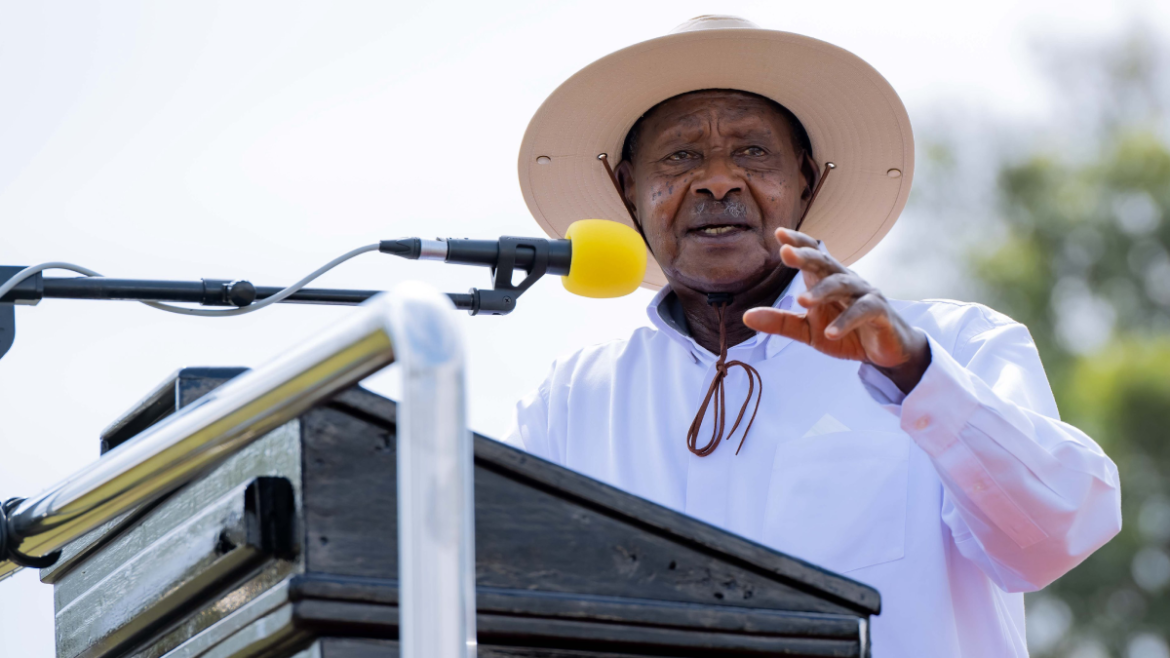Uganda’s long-serving President Yoweri Museveni will officially seek reelection in the upcoming general elections scheduled for January 2026, aiming to extend his nearly four decades in power. The announcement, which confirms months of speculation, was made by a senior official of the ruling National Resistance Movement (NRM) party in a video posted by state broadcaster UBC.
According to Tanga Odoi, chairperson of the NRM’s electoral commission, Museveni will pick up nomination forms on June 28 to contest for two positions—chairperson of the ruling party and presidential flag bearer. This marks the first formal declaration from the NRM confirming Museveni’s intention to run again.
“The president … will pick (up) expression-of-interest forms for two positions, one for chairperson of the party and the other to contest if he is given chance for presidential flag bearer,” Odoi said in the video shared on social media platform X (formerly Twitter).
Museveni, who is now 80 years old, first came to power in 1986 after leading a successful armed rebellion. Since then, he has entrenched himself as one of Africa’s most enduring leaders, currently ranking as the continent’s fourth longest-serving head of state. His continued hold on power has been facilitated by constitutional amendments backed by his party, which removed both presidential term limits in 2005 and the age cap in 2017.
Uganda’s 2026 general election will also include parliamentary polls, with political parties now in the process of vetting and endorsing their candidates.
President Museveni’s main challenger is once again expected to be opposition leader and musician-turned-politician Bobi Wine, whose real name is Robert Kyagulanyi. Wine has already declared his intention to run, setting up a rematch of the fiercely contested 2021 election.
In the last election, Wine finished second but rejected the results, citing widespread electoral fraud, ballot stuffing, and voter intimidation—claims echoed by international observers and human rights groups. Security forces surrounded his home during and after the vote, drawing global attention and criticism.
Museveni has consistently denied allegations of authoritarianism, instead framing his long tenure as a product of popular support and national stability. His government points to major infrastructure projects, relative economic growth, and military discipline as signs of effective leadership.
However, critics and rights groups accuse the president of using the military, police, and patronage networks to suppress dissent and maintain control. Arrests of opposition figures, restrictions on media, and the use of force against protesters have marred Uganda’s democratic credentials in recent years.
Bobi Wine and his National Unity Platform (NUP) have promised to keep pushing for political reforms and electoral transparency ahead of the 2026 polls, though observers remain skeptical about the prospects for a free and fair vote in the current political climate.
Museveni’s continued dominance of the political scene has also raised questions about succession planning within the NRM. While some members of the ruling party have urged the president to prepare for a transition, others remain loyal and view him as a symbol of continuity and national unity.
With Museveni’s official entry into the race now confirmed, Uganda is heading into what is expected to be another tightly controlled but closely watched election season. The coming months will see intensifying political activity, vetting of candidates, campaign preparations, and growing scrutiny from both domestic and international stakeholders.
